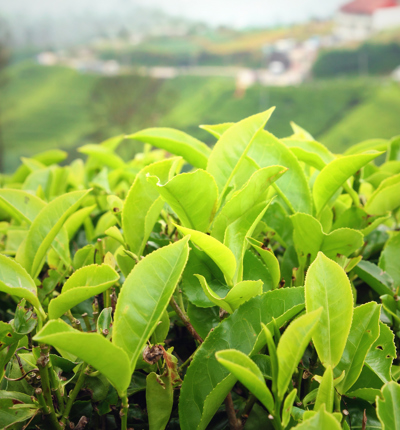
International Day of Rural Women: the importance of restorative justice
For the International Day of Rural Women, Rebecca Swan, Ana Rizelo and Alex Wessely consider the vital role Leigh Day legal cases have played in improving life for rural women.
Posted on 24 October 2022
On 15 October we celebrated the International Day of Rural Women. This significant date marks a key pillar in the fight for corporate accountability: rural women and girls form one of the most vulnerable groups of survivors of human rights violations who are represented by Leigh Day.
As highlighted by the UN, while rural women are crucial to the life and functioning of their communities, a vast array of gender inequalities persist and restrict their full potential, frequently exposing them to the informal economy where they have little or no social protection and labour rights.
While we recognise the importance and the need to raise awareness of our clients’ vulnerability, through a series of innovative measures adopted in a number of our cases, we also seek to build capacity amongst rural women to empower them to join forces in the fight against violations and abuses perpetrated by corporates.
In recent cases, Leigh Day – in consultation with our clients, relevant NGOs, and civil society stakeholders – have successfully negotiated creative and complex settlements which take into account “restorative justice” and aim to give effect to the UN Guiding Principles on Business and Human Rights (UNGPs).
These settlements provide a package of measures aimed at improving the lives of the wider communities where our clients live, and at further protecting our most vulnerable clients. By focusing on highlighting and changing the underlying issues which led to the legal action in the first place, these measures benefit both the claimant communities and the defendant companies.
However, the settlements also include measures aimed at resolving any future grievances that may arise in an independent and transparent manner. This means that, even once the cases have ended, any future victims should be able to access appropriate remedy (financial and non-financial) without needing to re-engage in what can be expensive and time-consuming litigation.
Case studies
Malawi
Leigh Day acted on behalf of 36 Malawian women who alleged that they had experienced gender-based violence, including rape in some cases, and sexual harassment while working on tea estates in the Mulanje and Thyolo districts of Malawi, while employed by Eastern Produce Malawi Ltd (EPM), an indirect subsidiary of Camellia plc.
A settlement was reached in February 2021, which included compensation for the claimants and the establishment of measures designed to improve the safety and security of EPM’s female employees and improve conditions for women in the wider community. These measures include a Women’s Empowerment Initiative, funding projects to improve skills, employment opportunities, and educational attainment of women and girls (the latter supported by a scholarship programme), in and around EPM's operations. EPM has also established a specialist female leadership training programme to support the career progression of women into more senior positions at EPM, including a new role of “Women’s Safeguarding Officer”. Further, EPM created an independently monitored Operational-level Grievance Mechanism (OGM) to address grievance related gender-based violence and/or sexual harassment at its operations.
Kenya
Leigh Day acted on behalf of 85 Kenyan people who made allegations of serious human rights abuses, including sexual abuse, by security guards employed by Kakuzi PLC, a company within the Camellia Group. Access to land was a key theme in the claims and several of the claimants were rural women who alleged that they fell victim to abuses whilst searching for water or firewood for their household.
Leigh Day resolved the 85 claims and a wide-ranging settlement was agreed between the parties.
Measures within the settlement included employing 30 new, mainly female, Safety Marshals on the Kakuzi farm to give visible reassurance to those using access routes and in particular vulnerable women and girls over the next three years. It also included building three new roads – two across Kakuzi’s land, and accessible by unlicensed motor vehicle, to allow the communities better access to local amenities and services. Kakuzi is also funding charcoal kilns and giving access to firewood so that communities can produce and sell sustainable charcoal to generate an income for themselves.
Tanzania
Leigh Day secured restorative justice measures in a settlement on behalf of 96 people who alleged serious human rights abuses, including sexual abuse and rape, against security guards employed at the Williamson Diamond Mine in Tanzania, which is ultimately owned by Petra Diamonds Limited. The package included funding for a wide range of community projects to provide income-generating opportunities for nearby residents. It also included a Medical Support Programme, with free medical screening and treatment to people living in 11 villages around the mine. An independent grievance mechanism is being developed. Petra has also committed to launch a sexual and gender-based violence awareness programme in partnership with HerDignity.
Conclusion
While the UNGPs set out a blueprint for how businesses and states should co-operate to protect and respect human rights and compensate for violations in some of the poorest countries in the world, more work is needed to properly address the needs of some of the more vulnerable groups, such as rural women and girls.
Multinationals everywhere should be taking note of the guidance provided in the UNGPs and taking the initiative with measures to prevent human rights abuses arising from their operations. Targeted action is crucial to ensure that particularly susceptible groups can get compensation, economic opportunities, and social benefits. This may require new projects designed to address pre-existing inequalities. This can only serve to strengthen a company’s social licence to operate, and lead to reduced tensions between it and the community.
Restorative measures focus on the individuals impacted by the abuse and are aimed at benefiting the communities surrounding, or near, a company’s concession. They are usually agreed after careful consideration and engagement with claimants, communities and local NGOs.
We hope these measures will bring about broader changes to the way companies work and that they will be compelled to address human rights risks, taking into account the vulnerabilities of people living near to their operations. We also hope that the communities, rural women and girls will benefit from these measures and from a dialogue with the companies.




